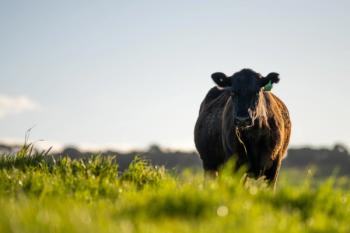
Prioritizing welfare: key issues facing small mammal pets
Study results indicate an urgent need for education, regulation, and care standards for these animals
Small mammal pets, such as rabbits, guinea pigs, hamsters, and rats, often experience serious welfare problems that many owners and even animal care professionals overlook. A recent study surveyed veterinary experts across Europe to identify the most critical welfare issues affecting these animals. By analyzing expert ratings of severity and prevalence, investigators created a ranked list of concerns for each species. Their findings reveal widespread welfare concerns related to housing, diet, social needs, and health care. These results point to the urgent need for action through better education, regulation, and care standards.
The study clearly identified housing size as the most pressing welfare concern for nearly all species, with rats as the sole exception. In rats, respiratory disease surpassed all other issues in impact, underscoring its serious effects on health and quality of life. Despite a growing body of knowledge about appropriate housing requirements, most owners still fail to provide suitable environments. Many cages sold commercially do not meet the basic physiological or behavioral needs of these animals. For instance, rats need vertical space to rear up fully, yet most cages do not offer this, severely limiting natural behavior.
Veterinary professionals, regardless of their location, consistently rated small housing as a top concern. Research shows that inadequate space significantly affects both physical and psychological wellbeing. For example, rabbits in cramped hutches display stress behaviors and reduced movement, while hamsters housed in small cages often develop stereotypical behaviors like wire-gnawing. Mice actively choose larger cages when given the option, showing that space affects not just physical health but also emotional wellbeing.
Respiratory disease in rats emerged as the most impactful welfare issue across all species studied. More than 60% of rat owners reported this problem, with causes ranging from poor ventilation and dusty bedding to stress and infection. This condition can shorten life expectancy and severely affect quality of life. Simple changes in husbandry, such as better air circulation, clean environments, and reduced stress, could prevent many of these cases. However, without proper education, most owners cannot implement these changes.
Inappropriate diets also scored highly across nearly all species. Guinea pigs, hamsters, and gerbils are especially vulnerable to poor nutritional practices. These animals require species-specific diets rich in fiber and low in sugars. When fed incorrectly, they develop serious issues such as dental disease, digestive disorders, and obesity. For grazing species like rabbits and guinea pigs, continuous access to roughage is essential. Without it, their teeth grow uncontrollably, leading to painful malocclusions and even starvation. Owners must understand the importance of consistent, high-quality nutrition.
Social needs and behavioral enrichment also emerged as major welfare gaps. Rabbits, chinchillas, and degus (small, burrowing rodents native to Chile that are similar to a prairie dog) suffer from being kept alone, despite their naturally social behavior. Many owners house them in isolation, unaware of the stress and behavioral issues that follow. Some species, like hamsters, require solitude, but others need companions to thrive. Inability to express natural behaviors because of poor housing or social deprivation ranked among the top issues for multiple species.
To address these issues, researchers call for better education, improved regulation, and increased availability of suitable housing and diets. Regulating pet retailers to ensure all enclosures meet minimum standards could dramatically improve conditions. Providing educational materials at the point of sale would ensure owners start with the right knowledge. Focusing resources on the most pressing concerns, especially inadequate housing and poor diet, could significantly improve the welfare of millions of small mammals.
Ava Landry is a 2026 PharmD candidate studying veterinary pharmacy at the University of Connecticut in Storrs.
Reference
Fenton L, Benato L, Mancinelli E, Rooney NJ. What are the most prevalent welfare issues for pet small mammals? Animals. 2025;15(10):1423. doi:10.3390/ani15101423
Newsletter
From exam room tips to practice management insights, get trusted veterinary news delivered straight to your inbox—subscribe to dvm360.





